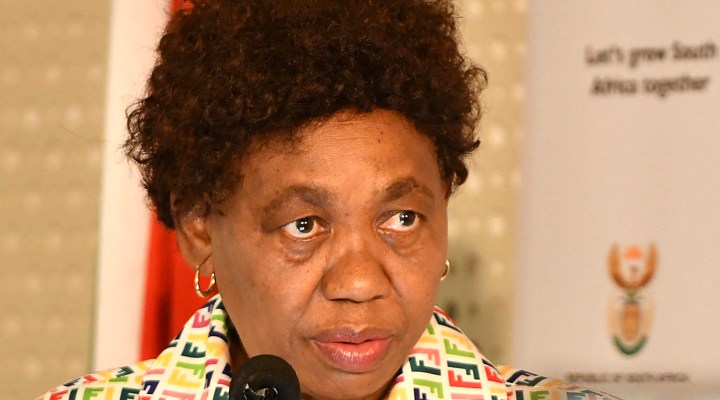2022 ACADEMIC YEAR
Back to school: A return to rotational learning for most, yet still no school placement for some

Basic Education Minister Angie Motshekga has said that her department is addressing challenges with admissions, particularly in Gauteng, and issued a reminder that Covid-19 protocols will continue to be enforced nationwide.
Announcing plans for the reopening of schools for the 2022 academic year, Basic Education Minister Angie Motshekga said that rotational timetabling will continue when schools across five provinces reopen on Wednesday.
“The fact of the matter is that Covid-19 is very much still with us, and we need to continue to work together to fight it.
“We are exploring possibilities to return schooling to normal, but we need to do so responsibly, and to this end we rely entirely on the advice of public health experts, through the Ministerial Advisory Committee, the National Coronavirus Command Council and Cabinet,” Motshekga said on Tuesday. The Minister was speaking at a media conference where she detailed the Department of Basic Education’s (DBE) school reopening readiness plan.
Learners at schools in inland provinces — Gauteng, Free State, Mpumalanga, Limpopo and North West — are set to return to school on Wednesday, 12 January.
Learners in the coastal provinces — KwaZulu-Natal, Eastern Cape, Western Cape and Northern Cape — will return a week later on Wednesday, 19 January.
This is according to the school calendar for 2022.
Minister Motshekga said this is a testament to parents’ preference to reopen schools in different provinces on separate dates.
“For the past two years we have had a common day for reopening, but after consulting extensively, we heard from communities and parents that they would prefer different dates for the opening of inland schools and coastal schools,” said Motshekga.
Motshekga added that there was a “significant decline” in the number of school closures due to Covid-19 in 2021.
“This can be attributed in part, to the successful vaccination programme of education personnel from June 2021. Another important factor that has contributed to the relative stability in the sector, is the adherence to Covid-19 health and safety protocols,” she said.
Motshekga said that it is expected that the same will apply this year, as the Department intensifies the implementation of its recovery programme.
“Covid-19 has had a devastating impact on the Basic Education sector in the last two years. We have spoken before about the learning losses incurred as a direct result of the Covid-19 pandemic — from the loss of teaching and learning time, to education personnel losing their lives to Covid-19 complications.
We have sought to find every strategy to keep the sector going, even under such difficult conditions,” added Motshekga.
School admissions
Addressing the media, Motshekga said the Department was aware that there are still learners who are yet to be placed in schools, and said that challenges with school admissions remained a concern, particularly in Gauteng.
“At the moment, Gauteng is experiencing challenges in this regard, and we appeal to parents and guardians to cooperate with the district officials to resolve any matter,” said Motshekga.
Motshekga added that the Department will continue to work with the provincial departments to ensure that all unplaced learners are admitted “as a matter of urgency”.
“We, however, implore parents and guardians to accept the schools in which their learners are placed. When schools have reached their maximum capacities, further admissions become impossible,” she added.
DBE Deputy Director-General, Simoné Geyer said that there are several challenges which hinder school admissions, such as late applications and an influx of learners into the schooling system.
“Provincial departments have gone out of their way to get the message across to ensure that all parents register their children, particularly for key intake years such as grade 1 and 8, but notwithstanding there are still some difficulties that the system does experience due to late applications,” said Geyer.
According to Geyer, “this is the main reason why we struggle with placement, especially in highly urbanised areas”.
There is also high demand for placement in schools in provinces such as Gauteng which can be attributed to an influx of workers and foreign nationals who are wanting to place their children in the schooling system, added Geyer. DM
[hearken id=”daily-maverick/8976″]


















 Become an Insider
Become an Insider
This minister looks very tired …